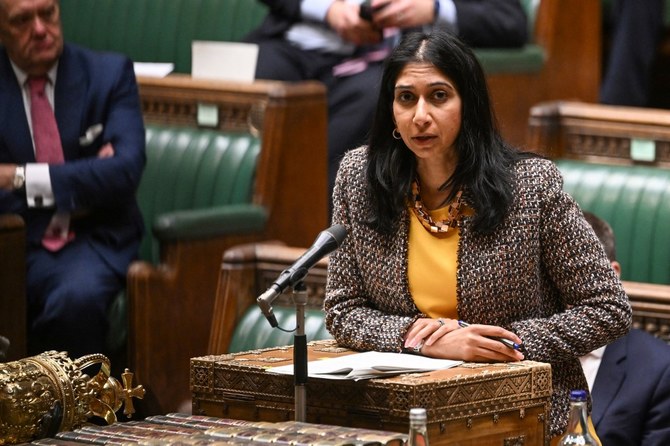
HOUSTON: The CERAWeek by IHS Markit event is sometimes called the “Oil Man’s Davos” and on the surface the resemblance is striking: At both big gatherings of the global elite, discussing weighty matters of policy and strategy by day, and letting their hair down at night, is a succession of receptions, dinners and after-parties.
But once you scratch just a bit below the surface, the similarities fade. The two events really are chalk and cheese. CERAWeek is slick, American, energy focused and very New World; Davos is chaotic, eccentric, eclectic and very European.
The geography is the telling factor, of course. The Swiss event is held 5,000 feet up on an Alpine mountain, constrained within the borders of a small town, and spills over from the Congress Hall to the frosty anarchy of the hotels, bars and cafes around.
Houston is the fourth largest city in the US, with a population of more than two million people, and is accessible by land, sea and air from George Bush International and other local airports. It is a real urban hub for west Texas, an American city given over to the motor car, with big open freeways linking the sprawling suburbs to the gleaming new downtown.
Every city block seems to have its own gigantic parking lot or multi-story parking block. The space given over just to parking would be enough for several hotels, chalet apartments and even a ski-run in Davos.
The other big difference is the central venue. Houston has one, Davos hasn’t. You can get through the week of the World Economic Forum (WEF) annual meeting without ever setting foot in the Congress Hall, following events on live stream from the Belvedere hotel with the other “Masters of the Universe.”
In the Bayou city, 99 percent of the action takes place on four floors of the Hilton Americas, a huge hotel and conference complex set in the midst of the sparking new downtown area. There are events around and about the Hilton — the Grove steakhouse on Lamar Street is known as a power dining hub — but you can easily spend the whole week just in the Hilton.
If you do venture outside, the other obvious difference between Houston and Davos hits you straight away: You can walk the streets of Houston in the comfort of a business suit and normal shoes, without having to don extreme weather gear every time you leave the indoors.
At this time of year, Houston is a pleasant climate, in the low 20s, with the occasional refreshing shower to keep you stimulated. The summer is hot, stuffy and humid, they tell me, and in autumn there is the ever-present risk of hurricanes like Harvey, the one that devastated Houston last year. But for CERAWeek, the weather is perfect.
The two events share another similarity, in that they are each the creation — largely — of one man. Klaus Schwab founded the WEF and led Davos through 48 years of WEF annual meetings, while Daniel Yergin has overseen CERAWeek through 37 years of gatherings.
Yergin, who won the Pullitzer Prize with his epic history of the oil industry “The Prize,” is ubiquitous at CERAWeek, running the event almost single-handedly, chairing and moderating events from dawn to dusk. Schwab only comes out of his Chairman’s Office for the really big ones, like — embarrassingly — Donald Trump at this year’s event. Where Schwab is oleaginous and deferential, Yergin is probing and incisive.
One final difference: Davos has fondue and skiing, Houston has steak and the rodeo, an annual celebration of Texan cowboy heritage that coincides with CERAWeek. An assessment of the latter will follow soon.












